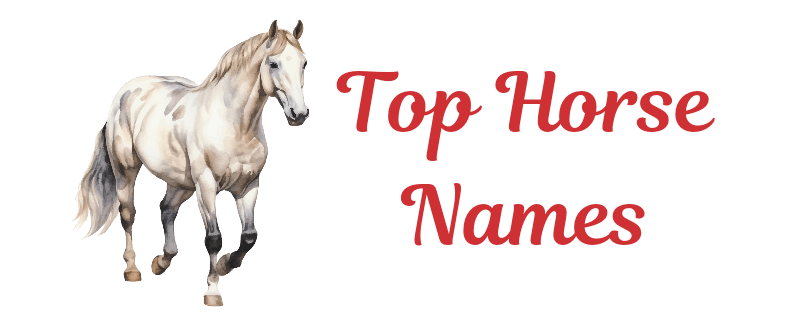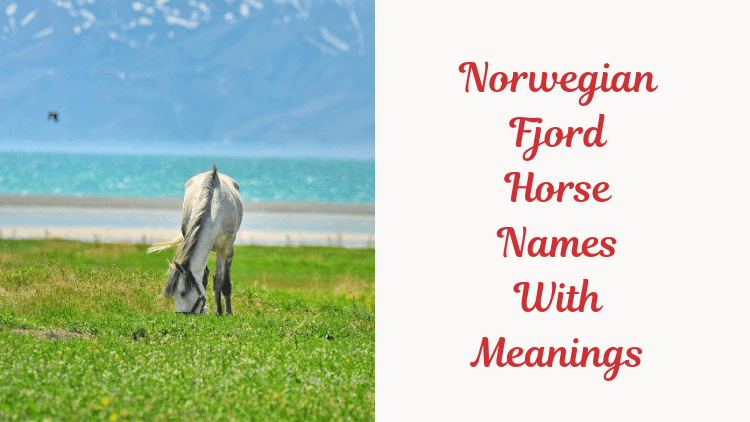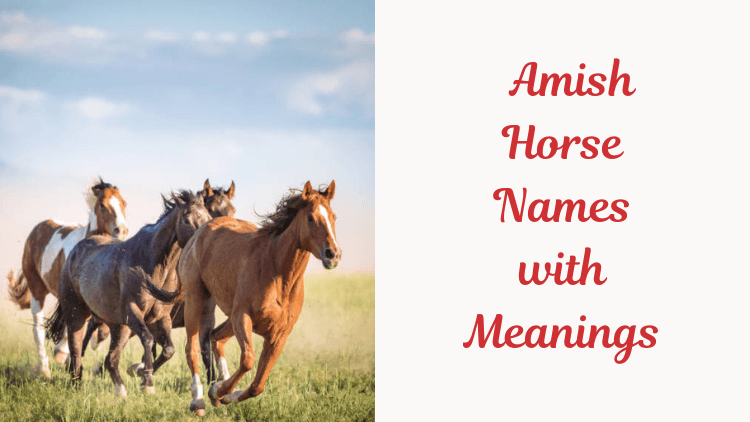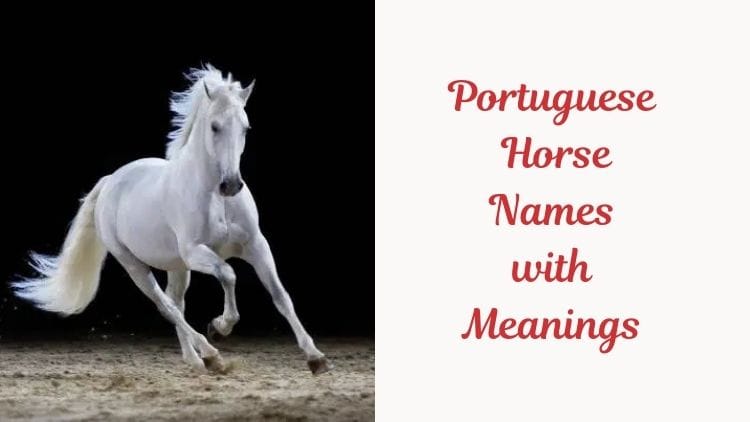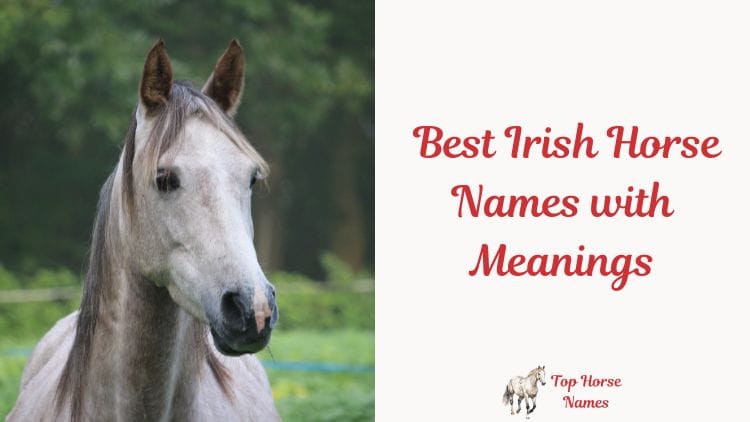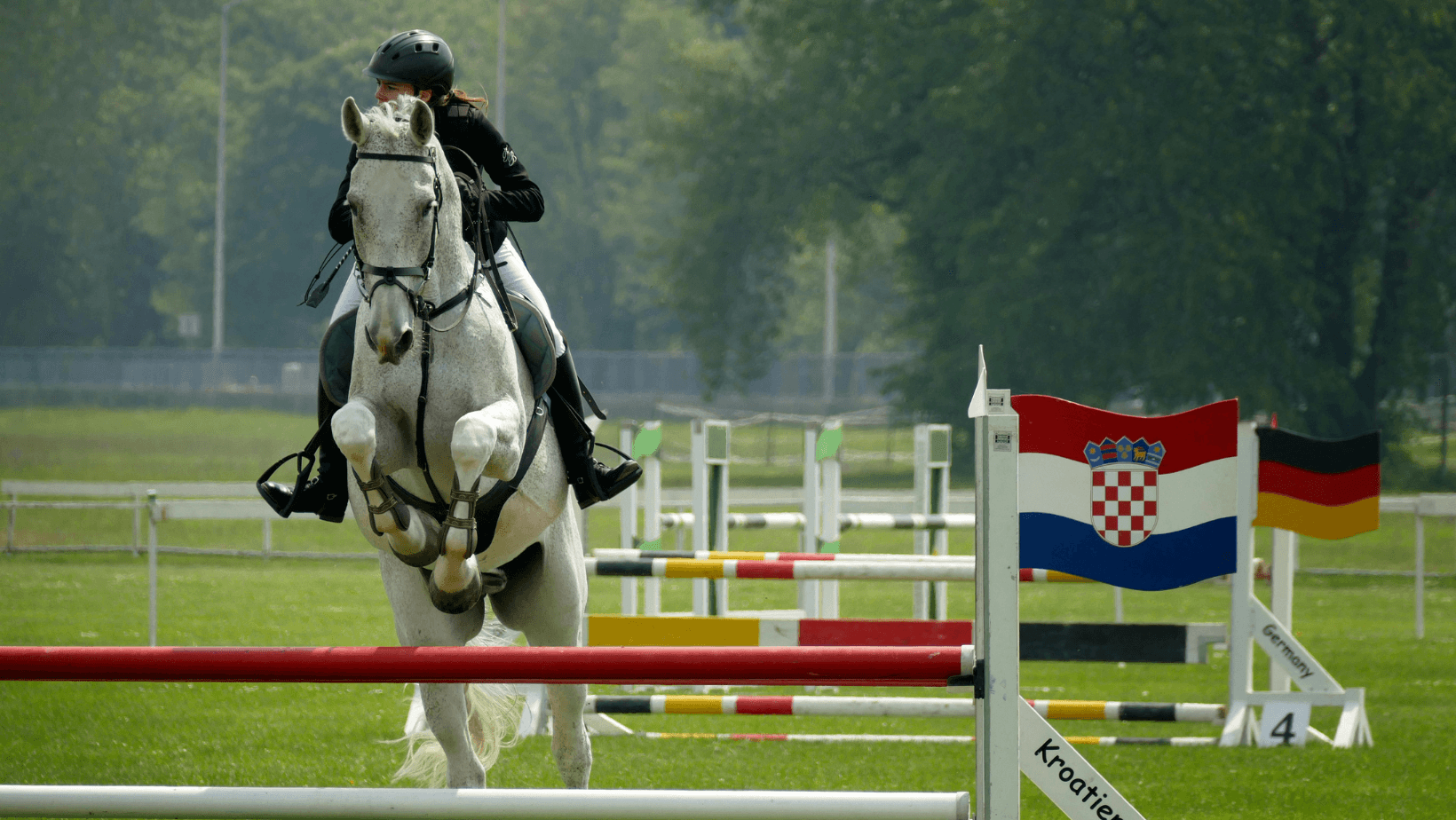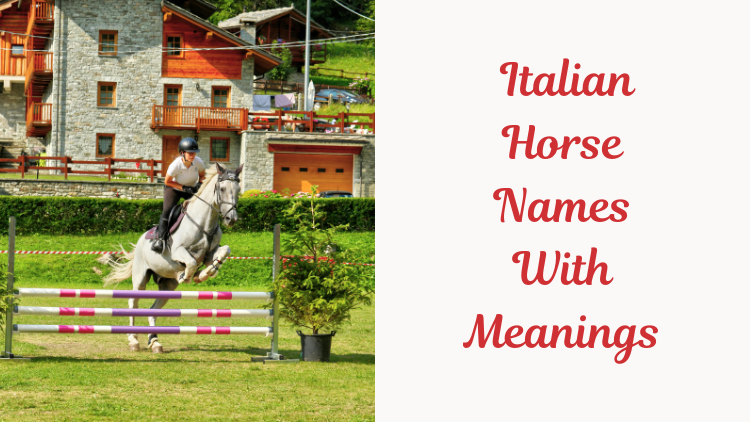151+ Unique Icelandic Horse Names
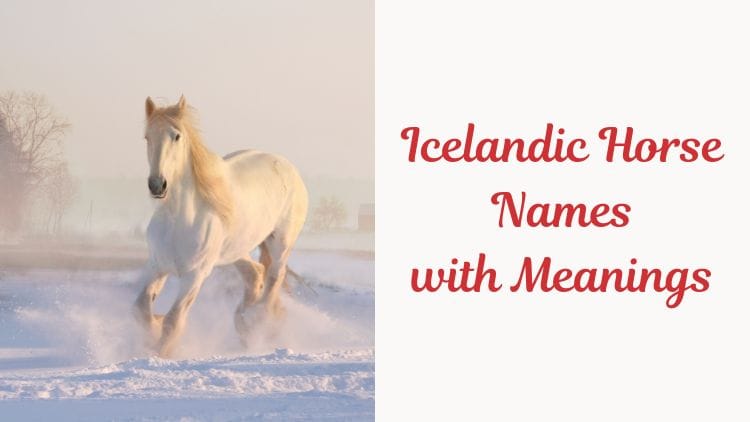
Icelandic horses are unique and beloved for their strength, resilience, and the rich heritage they carry.
Whether you’re looking for an Icelandic name for your real Icelandic horse or a virtual one in games like Star Stable Online, this list has something for every horse and personality.
With traditional Icelandic names, mythological references, and nature-inspired options, you’ll find plenty of inspiration to choose a name that truly honors your horse’s spirit and individuality.
Welcome to Our Ultimate Guide to 151+ Icelandic Horse Names!
Why Choose Icelandic Horse Names for Your Horse
Icelandic horse names are unique, meaningful, and steeped in tradition.
They often reflect nature, mythology, or the horse’s personality, making them a perfect choice for standing out.
Plus, they honor the resilient and noble Icelandic horse breed, known for its strength and beauty.
Our Best Name Picks for Icelandic Horses
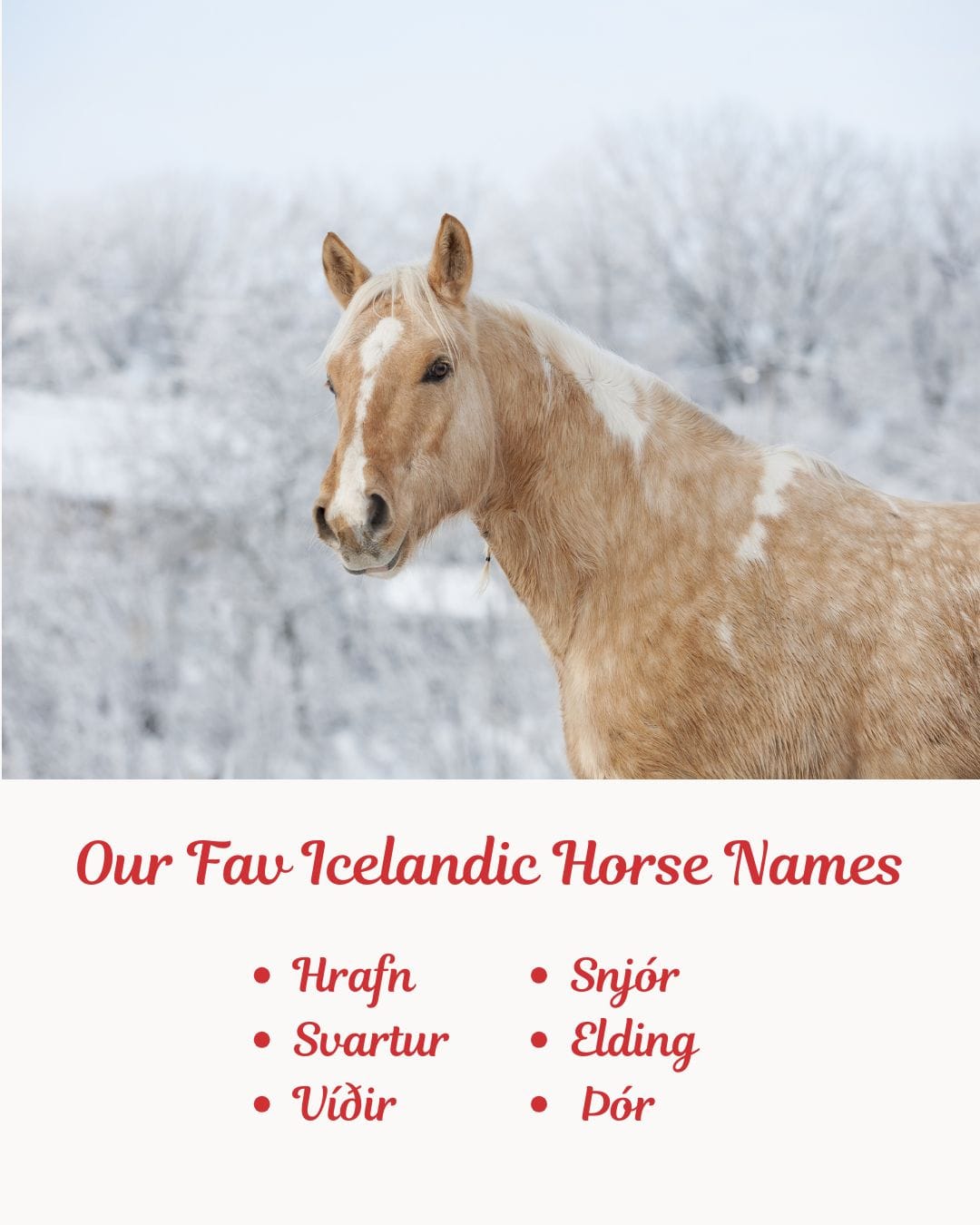
1. Elding (Pronunciation: [el-ding]) – Meaning: Lightning. Perfect for a fast and energetic horse.
2. Freyja (Pronunciation: [frey-ya]) – Meaning: Freyja (Goddess of Love and Beauty). Ideal for a graceful mare.
3. Snjór (Pronunciation: [snyor]) – Meaning: Snow. It is a classic choice for a white or light-colored horse.
4. Þór (Pronunciation: [thor]) – Meaning: Thor (God of Thunder). A powerful name for a strong stallion.
5. Kátur (Pronunciation: [kaht-ur]) – Meaning: Cheerful. Great for a playful, happy horse.
6. Svartur (Pronunciation: [svart-ur]) – Meaning: Black. A timeless name for a dark-colored horse.
7. Glampi (Pronunciation: [glam-pee]) – Meaning: Sparkle. Perfect for a horse with a shiny coat or a vibrant personality.
8. Krummi (Pronunciation: [kruh-mee]) – Meaning: Raven. Suits a mysterious or intelligent horse.
9. Víðir (Pronunciation: [vee-thir]) – Meaning: Forest. A great choice for a horse with a wild and free spirit.
10. Hrafn (Pronunciation: [hrah-vn]) – Meaning: Raven. Ideal for a sleek and elegant horse with a dark coat.
20 Fascinating Icelandic Horse Names
Icelandic horse names reflect the country’s rich heritage, inspired by Norse mythology, nature, and the horses’ traits.
These names carry deep meaning, connecting the horses to Iceland’s culture and landscape, showcasing their strength and unique charm.
Originally brought to Iceland by Viking settlers over 1,000 years ago, these horses have remained largely unchanged due to the country’s isolation and strict importation laws.
1. Ásbrá
Pronunciation: [OWS-brah]
Meaning: “God’s glow” or “heavenly light”
Origin & usage: Derived from Norse mythology, where “ás” refers to the gods, and “brá” means glow or radiance. This name is perfect for a horse with a radiant presence, symbolizing strength and divine beauty.
2. Elding
Pronunciation: [EL-ding]
Meaning: “Lightning”
Origin & usage: This name captures the essence of Iceland’s stormy weather and is often given to fast and energetic horses. It represents swiftness and power, ideal for a spirited companion.
3. Snædís
Pronunciation: [SNAY-dees]
Meaning: “Snow goddess”
Origin & usage: Combining “snæ” (snow) and “dís” (goddess), this name reflects Iceland’s snowy landscapes. It’s commonly used for graceful and light-colored mares, symbolizing beauty and elegance.
4. Ljósálfur
Pronunciation: [LYOHS-owl-fur]
Meaning: “Light elf”
Origin & usage: Inspired by Icelandic folklore, where light elves were radiant and pure beings. This name is suitable for a gentle and kind horse with a magical aura.
5. Faxi
Pronunciation: [FAHK-see]
Meaning: “Mane”
Origin & usage: A traditional Icelandic horse name referencing their distinctive thick mane. It symbolizes the strength and beauty of these iconic horses, often used for stallions.
6. Skuggi
Pronunciation: [SKOO-gee]
Meaning: “Shadow”
Origin & usage: A mystical name for a dark-colored or stealthy horse. Skuggi is popular among riders who want a name that embodies mystery and elegance.
7. Freyja
Pronunciation: [FRAY-yah]
Meaning: “Goddess of love and fertility”
Origin & usage: Named after the Norse goddess Freyja, this name is perfect for a nurturing mare with a warm and loving personality.
8. Galdur
Pronunciation: [GAL-dur]
Meaning: “Magic” or “spell”
Origin & usage: Inspired by Icelandic magic and sorcery traditions, Galdur is ideal for a horse that feels enchanting or extraordinary.
9. Hekla
Pronunciation: [HEK-lah]
Meaning: “Hooded” (also a famous Icelandic volcano)
Origin & usage: A strong name referencing the volcanic landscapes of Iceland. It’s a powerful name for a bold and resilient horse.
10. Draumur
Pronunciation: [DROW-mur]
Meaning: “Dream”
Origin & usage: Often given to a horse that feels like a dream come true. This poetic name is associated with aspiration and beauty.
11. Vindur
Pronunciation: [VIN-dur]
Meaning: “Wind”
Origin & usage: A name for swift and agile horses, reflecting the wild winds of Iceland. Vindur symbolizes freedom and energy.
12. Glóð
Pronunciation: [GLAW-th]
Meaning: “Glow” or “ember”
Origin & usage: Glóð captures the warmth and fiery spirit. It’s a suitable name for a spirited horse with a fiery coat or personality.
13. Sóley
Pronunciation: [SOH-lay]
Meaning: “Sun island” or “buttercup flower”
Origin & usage: A cheerful name inspired by Icelandic flora and sunshine, often used for bright and lively mares.
14. Þráinn
Pronunciation: [THRAH-een]
Meaning: “Stubborn”
Origin & usage: Rooted in Old Norse, this name reflects determination and perseverance, making it a fitting choice for a strong-willed horse.
15. Drífa
Pronunciation: [DREE-fah]
Meaning: “Snowstorm”
Origin & usage: This name is perfect for a horse that thrives in Iceland’s harsh winters. It represents strength and resilience.
16. Jökull
Pronunciation: [YOH-kul]
Meaning: “Glacier”
Origin & usage: Referencing Iceland’s iconic glaciers, Jökull suits a majestic, cool-tempered horse, often with a white or gray coat.
17. Sólmundur
Pronunciation: [SOHL-moon-dur]
Meaning: “Sun protector”
Origin & usage: A noble name from Old Norse tradition, ideal for a strong and dependable horse that embodies warmth and guardianship.
18. Brynja
Pronunciation: [BRIN-yah]
Meaning: “Armor”
Origin & usage: This name symbolizes protection and strength. It’s a great choice for a sturdy and reliable mare or stallion.
19. Hrafn
Pronunciation: [HRAPN]
Meaning: “Raven”
Origin & usage: Ravens are symbols of intelligence and mystery in Norse mythology. This name fits a clever, dark-colored horse with a commanding presence.
20. Blær
Pronunciation: [BLAIR]
Meaning: “Gentle breeze”
Origin & usage: A poetic name that reflects tranquility and grace. Blær is often chosen for calm and elegant horses.
You Might Also Like: 200+ Best & Unique Irish Horse Names
30 Popular Icelandic Horse Names
Popular Icelandic horse names often draw inspiration from Iceland’s rich natural landscape, its ancient Norse mythology, and the distinctive characteristics of the horses themselves.
Many names are influenced by Iceland’s unique geography, such as names derived from volcanic landscapes, mountains, and natural phenomena, like Eldur (fire) or Fjall (mountain).
Other names reflect traits like strength, beauty, or speed, often derived from Icelandic words for power and elegance.
Norse gods and legendary figures from Viking mythology also serve as a source for popular names, with names like Thor, Freya, and Odin being common choices.
1. Fákur
Pronunciation: FAH-kur
Meaning: Steed or horse
Origin & usage: A classic name in Icelandic folklore and literature, Fákur signifies a loyal and dependable companion. It’s often associated with mythical steeds in old Icelandic sagas.
2. Glóey
Pronunciation: GLOH-eh
Meaning: Glow or shining island
Origin & usage: Inspired by Iceland’s luminous landscapes, Glóey is used for mares with radiant appearances or lively dispositions.
3. Skuggi
Pronunciation: SKOO-ghee
Meaning: Shadow
Origin & usage: This name suits darker horses or those known for their quiet, stealthy movements. It’s also popular in poetic contexts.
4. Hrafn
Pronunciation: HRAHF-n
Meaning: Raven
Origin & usage: This strong, symbolic name reflects Iceland’s deep ties to nature and mythology, often used for powerful or intelligent horses.
5. Draumur
Pronunciation: DROW-mur
Meaning: Dream
Origin & usage: For horses that capture the imagination with their beauty or grace, Draumur is a poetic choice, reflecting Icelanders’ love for dreams and aspirations.
6. Elding
Pronunciation: EL-ding
Meaning: Lightning
Origin & usage: Perfect for swift, energetic horses, Elding highlights speed and intensity. It’s common among racehorses.
7. Sóley
Pronunciation: SOH-lay
Meaning: Buttercup flower
Origin & usage: Named after a native Icelandic flower, Sóley is ideal for mares with a gentle or sunny disposition.
8. Vindur
Pronunciation: VIN-dur
Meaning: Wind
Origin & usage: Reflecting Iceland’s ever-present winds, this name suits agile and fast horses, emphasizing freedom and movement.
9. Blámi
Pronunciation: BLAW-mee
Meaning: Blueish or pale blue
Origin & usage: Often given to horses with unique gray or blue-tinted coats, Blámi is also linked to Icelandic folklore.
10.Sól
Pronunciation: SOHL
Meaning: Sun
Origin & usage: This name conveys warmth, vitality, and brightness. Sól is a fitting name for golden or chestnut-colored horses.
11. Jökull
Pronunciation: YER-kul
Meaning: Glacier
Origin & usage: Jökull evokes the majestic and icy beauty of Iceland’s landscapes. It’s popular for strong, resilient horses.
12. Þór
Pronunciation: THOR
Meaning: Thor, the Norse god of thunder
Origin & usage: A powerful and heroic name, Þór is often reserved for bold and robust stallions.
13. Hekla
Pronunciation: HEK-lah
Meaning: Iceland’s most famous volcano
Origin & usage: Hekla suits spirited mares, embodying fiery energy and strength.
14. Bjarmi
Pronunciation: BYAR-mee
Meaning: Glow or brightness
Origin & usage: A name celebrating light, often used for light-coated or bright-spirited horses.
15.Móey
Pronunciation: MOH-ay
Meaning: Heath island
Origin & usage: Inspired by Iceland’s heaths and rugged terrain, this name is perfect for resilient, nature-loving mares.
16. Rjómi
Pronunciation: RYO-mee
Meaning: Cream
Origin & usage: Ideal for horses with light-colored coats, Rjómi reflects purity and gentleness.
17.Hrímnir
Pronunciation: HREEM-neer
Meaning: Frosty
Origin & usage: A mythical name from Icelandic sagas, Hrímnir is suited to hardy horses that thrive in cold climates.
18. Edda
Pronunciation: ED-dah
Meaning: Poetic or from the sagas
Origin & usage: Edda connects to Iceland’s literary heritage, perfect for elegant and wise mares.
19. Vaka
Pronunciation: VAH-kah
Meaning: Watchful or awake
Origin & usage: A name for alert and intelligent horses, Vaka represents vigilance and attentiveness.
20. Leifur
Pronunciation: LAY-fur
Meaning: Descendant or heir
Origin & usage: Derived from the famous explorer Leif Erikson, Leifur suits adventurous and bold stallions.
21. Silfra
Pronunciation: SILF-rah
Meaning: Silver
Origin & usage: Associated with shimmering light, Silfra is perfect for sleek, silver-coated horses.
22. Krafla
Pronunciation: KRAH-flah
Meaning: Volcano in North Iceland
Origin & usage: This fiery name represents strength and untamed energy, ideal for dynamic horses.
23. Snær
Pronunciation: SNAYR
Meaning: Snow
Origin & usage: Snær is a favorite for white or light-colored horses, symbolizing purity and Icelandic winters.
24. Huginn
Pronunciation: HOO-gin
Meaning: Thought
Origin & usage: Huginn is one of Odin’s ravens from Norse mythology. It suits intelligent and curious horses.
25. Freyja
Pronunciation: FRAY-yah
Meaning: Norse goddess of love and beauty
Origin & usage: A popular name for graceful mares, Freyja conveys elegance and charm.
26. Ljómi
Pronunciation: LYOH-mee
Meaning: Radiance
Origin & usage: For bright and lively horses, Ljómi emphasizes vitality and beauty.
27. Geysir
Pronunciation: GAY-seer
Meaning: Icelandic hot spring
Origin & usage: Named after the famous geyser, this name fits spirited, energetic horses.
28. Katla
Pronunciation: KAT-lah
Meaning: Volcano in South Iceland
Origin & usage: Katla symbolizes raw energy and passion, ideal for strong-willed mares.
29. Stjarna
Pronunciation: STYAR-nah
Meaning: Star
Origin & usage: A fitting name for a standout horse, Stjarna reflects brilliance and uniqueness.
30. Þoka
Pronunciation: THOH-kah
Meaning: Mist
Origin & usage: Perfect for ethereal or calm horses, Þoka captures Iceland’s mystical landscapes.
30 Good & Beautiful Icelandic Horse Names
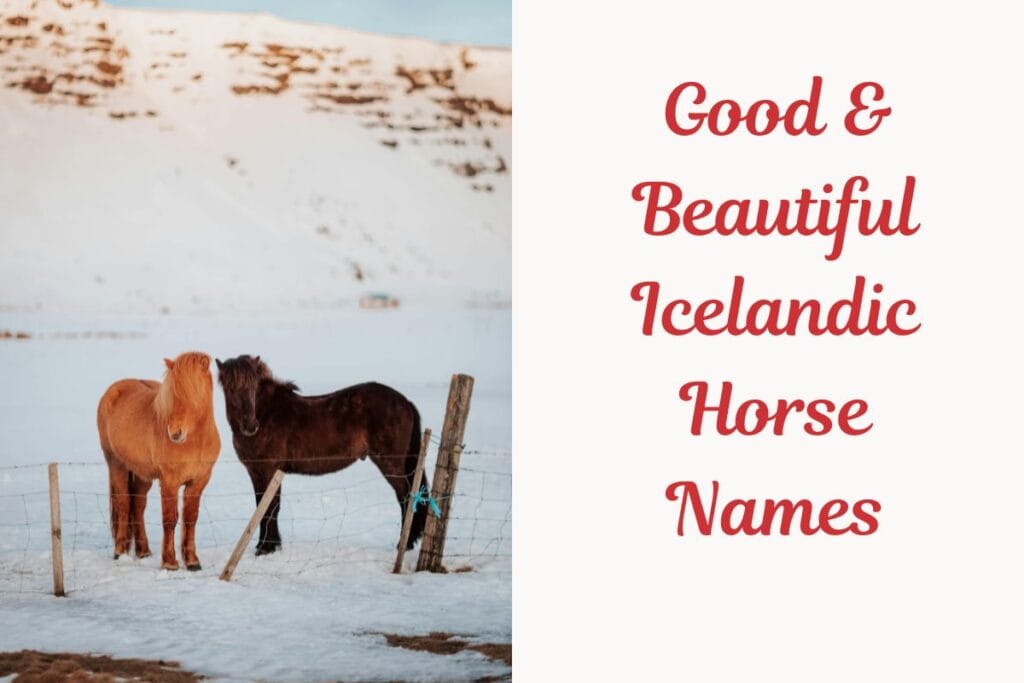
Good and beautiful Icelandic horse names often reflect the unique qualities of the breed, such as strength, grace, and a deep connection to nature.
These names can be inspired by Iceland’s stunning landscapes, including volcanoes, glaciers, and mountains, as well as its rich mythology and folklore.
Names like Sól (sun), Eldur (fire), and Brynja (armor) evoke both the ruggedness and beauty of the Icelandic environment. Additionally, names from Norse gods and legendary figures, such as Freya and Thor, highlight the powerful and noble nature of the Icelandic horse.
1. Ásta
Pronunciation: OW-stah
Meaning: Love, devotion
Origin & Usage: Ásta is a classic Icelandic name meaning love. It is often used for affectionate, loyal horses that share a strong bond with their owners.
2. Björk
Pronunciation: BYERK
Meaning: Birch tree
Origin & Usage: Inspired by Iceland’s iconic birch trees, this name suits a graceful and resilient horse. It’s commonly chosen for mares with a gentle spirit.
3. Drífa
Pronunciation: DREE-fah
Meaning: Snowfall
Origin & Usage: Drífa is ideal for a white or winter-loving horse. It evokes the beauty of Iceland’s snowy landscapes and is linked to Icelandic winter folklore.
4. Eldur
Pronunciation: EL-dur
Meaning: Fire
Origin & Usage: Eldur suits a spirited horse with a fiery personality. It’s a powerful name inspired by Iceland’s volcanic landscape.
5. Freyja
Pronunciation: FRAY-yah
Meaning: Norse goddess of love and beauty
Origin & Usage: This mythological name is perfect for a majestic mare. Freyja is revered in Norse mythology and symbolizes grace and charm.
6. Geysir
Pronunciation: GAY-seer
Meaning: Geyser
Origin & Usage: Geysir reflects Iceland’s geothermal wonders. It is often given to lively horses that exhibit bursts of energy.
7. Hekla
Pronunciation: HEK-lah
Meaning: Icelandic volcano
Origin & Usage: Hekla is inspired by the famous volcano. This name suits a strong and adventurous horse, embodying Iceland’s raw nature.
8. Ísey
Pronunciation: EE-say
Meaning: Ice island
Origin & Usage: A delicate and unique name for a calm, snow-colored horse, Ísey pays homage to Iceland’s icy beauty.
9. Jökull
Pronunciation: YOH-kull
Meaning: Glacier
Origin & Usage: A majestic name for a robust horse, Jökull symbolizes strength and endurance, much like Iceland’s ancient glaciers.
10. Katla
Pronunciation: KAT-lah
Meaning: Volcano
Origin & Usage: Named after a legendary Icelandic volcano, Katla is fitting for a bold and spirited horse with a strong will.
11. Ljómi
Pronunciation: LYOH-mee
Meaning: Glow, brightness
Origin & Usage: Ljómi is a poetic name for a vibrant horse that radiates energy and beauty. It’s often associated with golden or shiny coats.
12. Máni
Pronunciation: MAH-nee
Meaning: Moon
Origin & Usage: Máni is inspired by the Norse moon god and is suitable for a calm and mystical horse with a soft demeanor.
13. Norðri
Pronunciation: NOR-three
Meaning: North
Origin & Usage: Norðri is a directional name ideal for a horse accustomed to cold climates and rugged terrain, reflecting Iceland’s northern spirit.
14. Ósk
Pronunciation: OHSK
Meaning: Wish
Origin & Usage: A charming name for a cherished horse, Ósk embodies the feeling of a fulfilled dream or a special bond.
15. Rós
Pronunciation: ROHS
Meaning: Rose
Origin & Usage: Rós is a lovely choice for a delicate, beautiful mare. It represents Icelandic wildflowers and a horse’s unique elegance.
16. Sól
Pronunciation: SOHL
Meaning: Sun
Origin & Usage: Sól is perfect for a horse with a bright and warm personality, bringing light to any stable.
17. Þoka
Pronunciation: THO-kah
Meaning: Mist
Origin & Usage: Þoka suits a mysterious or soft-hued horse, reminiscent of Iceland’s foggy landscapes.
18. Unnur
Pronunciation: OON-nur
Meaning: Wave
Origin & Usage: Inspired by the ocean’s rhythm, Unnur is a fitting name for a horse with a flowing gait and a serene nature.
19. Vetur
Pronunciation: VEH-tour
Meaning: Winter
Origin & Usage: Vetur is ideal for a hardy horse born in winter, symbolizing resilience against the elements.
20. Ylja
Pronunciation: IL-yah
Meaning: Warmth
Origin & Usage: This name is perfect for a comforting and loyal horse, evoking feelings of warmth during cold Icelandic nights.
21. Ægir
Pronunciation: EYE-geer
Meaning: Sea
Origin & Usage: Ægir is a mythological name linked to the Norse sea god, suitable for a horse that exudes power and majesty.
22. Blær
Pronunciation: BLIE-er
Meaning: Gentle breeze
Origin & Usage: Blær is often given to light-footed and graceful horses, reflecting the beauty of a calm Icelandic day.
23. Dagur
Pronunciation: DAH-gur
Meaning: Day
Origin & Usage: Dagur is a bright and uplifting name, perfect for a cheerful and energetic horse that brightens any day.
24. Eldey
Pronunciation: EL-dey
Meaning: Fire island
Origin & Usage: Eldey is a dramatic name inspired by Iceland’s volcanic isles, perfect for a horse with an adventurous spirit.
25. Glóð
Pronunciation: GLOTH
Meaning: Ember
Origin & Usage: Glóð suits a fiery and energetic horse, often used for chestnut or reddish-colored horses.
26. Harpa
Pronunciation: HAR-pah
Meaning: Harp
Origin & Usage: Harpa symbolizes harmony and music, making it a lovely name for a gentle and soothing horse.
27. Ísar
Pronunciation: EE-sar
Meaning: Ice
Origin & Usage: Ísar is perfect for a horse known for its cool temperament or icy-colored coat.
28. Kári
Pronunciation: KOW-ree
Meaning: Wind
Origin & Usage: Kári is linked to the Norse god of wind, ideal for a swift and agile horse with an untamed spirit.
29. Lóa
Pronunciation: LOH-ah
Meaning: Golden Plover
Origin & Usage: Named after Iceland’s beloved bird, Lóa is often chosen for horses that are lively and cheerful.
30. Tindurion: TIN-dur
Meaning: Peak
Origin & Usage: Tindur is ideal for a strong and proud horse, symbolizing the towering peaks of Ic
Pronunciatelandic mountains.
15 Unique & Cute Icelandic Horse Names
Unique and cute Icelandic horse names are usually influenced by Iceland’s beautiful landscapes, rich mythology, and endearing characteristics.
These names are chosen for their charm, symbolism, and connection to Icelandic culture.
Nature-inspired names like Sóley (buttercup) or Lilja (lily) evoke the beauty of Iceland’s flora, while others might reflect the horse’s personality or appearance. Mythological influences, such as Freydís (a Valkyrie and goddess) or Tindra (meaning “twinkle”), add a layer of mystique.
1. Elding
Pronunciation: EL-ding
Meaning: Lightning
Origin & Usage: Elding signifies speed and energy, reflecting the Icelandic horse’s agility. It’s a popular choice for spirited horses and symbolizes nature’s raw power, deeply ingrained in Iceland’s natural landscape.
2. Hrímfaxi
Pronunciation: HREEM-fahk-see
Meaning: Frost Mane
Origin & Usage: Taken from Norse mythology, Hrímfaxi was the horse of the night. It’s a fitting name for horses with silvery or frosted coats, adding an air of mystique and mythology.
3. Blær
Pronunciation: BLYE-r
Meaning: Gentle Breeze
Origin & Usage: Blær evokes the beauty of Iceland’s windswept landscapes. Ideal for calm, graceful horses, the name reflects Icelanders’ poetic connection with nature.
4. Sólskríkja
Pronunciation: SOLE-skree-kya
Meaning: Sunlit Song
Origin & Usage: This poetic name suits cheerful and lively horses. It reflects the joy of sunny days in Iceland, rare and precious, much like the horse itself.
5. Skjóna
Pronunciation: SKYO-na
Meaning: Piebald Horse
Origin & Usage: A traditional name for Icelandic horses with distinctive piebald patterns, Skjóna pays homage to Iceland’s farming heritage.
6. Vaka
Pronunciation: VAH-ka
Meaning: Vigilant or Watchful
Origin & Usage: This name symbolizes attentiveness and intelligence. It’s commonly given to horses known for their alert and responsive temperament.
7. Krafla
Pronunciation: KRAH-fla
Meaning: Eruption (after an Icelandic volcano)
Origin & Usage: Named after the Krafla volcano, it suits a spirited and fiery horse, embodying Iceland’s volcanic and dramatic terrain.
8. Ljósálfur
Pronunciation: LYOHS-owl-fur
Meaning: Light Elf
Origin & Usage: A mythical name inspired by Icelandic folklore, Ljósálfur is perfect for a light-colored or graceful horse that seems otherworldly.
9. Draumur
Pronunciation: DROY-mur
Meaning: Dream
Origin & Usage: A romantic name for a beloved horse, Draumur reflects the dreamlike connection between rider and steed, cherished in Icelandic culture.
10. Hagl
Pronunciation: HAH-gl
Meaning: Hail
Origin & Usage: This name represents strength and resilience, ideal for tough horses that can weather harsh conditions, much like Icelandic hailstorms.
11. Fjara
Pronunciation: FYAH-rah
Meaning: Seashore
Origin & Usage: Fjara evokes Iceland’s stunning coastlines and is perfect for a horse with a calm and soothing presence, like the rhythm of ocean waves.
12. Stormur
Pronunciation: STOR-mur
Meaning: Storm
Origin & Usage: This strong, dynamic name is a tribute to Iceland’s unpredictable weather and suits bold, powerful horses with commanding personalities.
13. Lóa
Pronunciation: LO-ah
Meaning: Golden Plover (a bird)
Origin & Usage: Lóa is named after the bird that heralds Icelandic spring. It suits a swift and elegant horse, symbolizing hope and renewal.
14. Fenrir
Pronunciation: FEN-reer
Meaning: Mythical Wolf
Origin & Usage: While not a horse in mythology, Fenrir is a fierce name, often chosen for strong, dark-coated horses that exude strength and mystery.
15. Mánadís
Pronunciation: MAH-nah-dees
Meaning: Moon Goddess
Origin & Usage: Inspired by Icelandic celestial folklore, Mánadís is a fitting name for a graceful and elegant mare, glowing like the moonlight.
15 Male Icelandic Horse Names
Male Icelandic Horse Names often draw inspiration from the country’s rich cultural heritage, natural surroundings, and the distinctive qualities of the horses themselves.
These names are typically strong, reflecting the horse’s stamina, resilience, and nobility.
Many names are rooted in Icelandic language and Norse mythology, with references to gods, legendary figures, and heroic traits.
Here’s a list of some truly captivating and attractive horse names that are sure to stand out and resonate!
1. Arnar
Pronunciation: AHR-nahr
Meaning: Eagle
Origin & Usage: Derived from Old Norse, Arn means “eagle.” This name symbolizes strength, freedom, and keen vision. Commonly given to horses with sharp instincts or majestic appearances, echoing the traits of the bird of prey.
2. Dagur
Pronunciation: DAH-ghoor
Meaning: Day
Origin & Usage: Rooted in Old Norse mythology, Dagur is associated with light and brightness. A fitting name for horses with a radiant coat or a lively, cheerful demeanor.
3. Baldur
Pronunciation: BAL-door
Meaning: God of Light
Origin & Usage: Named after the Norse god Baldur, who symbolizes purity and beauty. This name is suitable for noble and graceful stallions with a calm temperament.
4. Hjálmar
Pronunciation: HYOWL-mar
Meaning: Helmet or protector
Origin & Usage: This Old Norse name signifies protection and strength, ideal for a brave or steadfast horse that displays resilience and courage.
5. Rúnar
Pronunciation: ROO-nahr
Meaning: Secret or mystery
Origin & Usage: This poetic name comes from Old Norse roots, often associated with enigmatic or spirited horses that have a unique presence.
6. Sólon
Pronunciation: SOH-lohn
Meaning: Sunshine
Origin & Usage: Inspired by Iceland’s connection to the sun and its light during long summer days, this name suits horses with a golden or warm coat and an upbeat character.
7. Einar
Pronunciation: AY-nahr
Meaning: Lone warrior
Origin & Usage: Rooted in Norse history, Einar reflects independence and bravery. This name is perfect for a horse with a determined spirit or a strong, solitary streak.
8. Fálki
Pronunciation: FAHL-kee
Meaning: Falcon
Origin & Usage: Named after the falcon, this name is for agile, swift horses with sharp instincts, embodying the qualities of this revered bird of prey.
9. Leifur
Pronunciation: LAY-vur
Meaning: Descendant or heir
Origin & Usage: Derived from Norse sagas, this name is ideal for noble and majestic horses, especially those with an impressive lineage or heritage.
10. Bjarki
Pronunciation: BYAR-kee
Meaning: Little bear
Origin & Usage: This affectionate name combines strength and charm, often given to sturdy yet gentle horses that display protective instincts.
11. Víkingur
Pronunciation: VEE-king-ur
Meaning: Viking
Origin & Usage: A strong, adventurous name reflecting Iceland’s rich Viking heritage. Ideal for horses with boldness, stamina, and a fearless disposition.
12. Sævar
Pronunciation: SIGH-vahr
Meaning: Sea Warrior
Origin & Usage: Inspired by Iceland’s maritime culture, Sævar is suited to horses with a calm yet powerful nature, like the ocean’s tides.
13. Hrafn
Pronunciation: HRAH-vn
Meaning: Raven
Origin & Usage: Symbolizing wisdom and mystique, Hrafn is perfect for sleek, black-coated horses or those with a mysterious aura.
14. Geir
Pronunciation: GAYR
Meaning: Spear
Origin & Usage: Rooted in Old Norse, this name signifies strength and precision. Horses with sharp focus or an assertive presence fit well with Geir.
15. Þórarinn
Pronunciation: THOH-rah-rin
Meaning: Thor’s eagle
Origin & Usage: A majestic name linking Norse mythology and nature, Þórarinn is for horses with regal qualities or strong ties to Icelandic traditions.
15 Female Icelandic Horse Names
When it comes to naming female Icelandic horses, the choices are as unique and captivating as the breed itself.
Known for their sturdy build, smooth gaits, and friendly disposition, female Icelandic horses deserve names that reflect their strength and beauty.
Often inspired by Icelandic nature, folklore, or mythology, these names can evoke images of the stunning landscapes and rich culture of their homeland.
Whether you’re looking for a name that celebrates their heritage or one that highlights their playful spirit, this guide will help you discover the perfect name for your beloved mare.
1. Bryndís
Pronunciation: [brin-dees]
Meaning: “Armored goddess”
Origin & usage: A strong, noble name derived from Old Norse elements “bryn” (armor) and “dís” (goddess). It’s a name associated with women of great strength and protection.
2. Elísabet
Pronunciation: [e-lee-sah-bet]
Meaning: “God is my oath”
Origin & usage: A common Icelandic name derived from the Hebrew name Elisheba, meaning “God is my oath.” It signifies a deep connection to faith and commitment.
3. Hrafnhildur
Pronunciation: [hrafn-hil-dur]
Meaning: “Raven battle”
Origin & usage: Combining “hrafn” (raven) and “hildur” (battle), this name evokes the power and mystery of ravens and the strength of battle.
4. Ingibjörg
Pronunciation: [ing-ee-byorg]
Meaning: “Ing’s protection”
Origin & usage: A name from Old Norse, where “Ing” refers to the Norse god, and “björg” means protection or help. It reflects divine protection and strength.
5. Ásdis
Pronunciation: [aw-s-dees]
Meaning: “Goddess”
Origin & usage: A feminine name derived from “Ás,” meaning “god,” and “dís,” meaning “goddess.” It represents divine feminine power and wisdom.
6. Freyja
Pronunciation: [frey-ya]
Meaning: “Lady”
Origin & usage: Named after the Norse goddess Freyja, associated with love, beauty, and fertility. It’s a popular name for horses with a graceful and gentle nature.
7. Gná
Pronunciation: [g-nah]
Meaning: “Strenuous”
Origin & usage: A name from Old Norse meaning “strenuous” or “energetic.” Gná is a servant of the goddess Frigg in mythology, known for her speed and agility.
8. Rósa
Pronunciation: [roh-sa]
Meaning: “Rose”
Origin & usage: Derived from the flower, symbolizing beauty and femininity. Rósa is a simple yet elegant name, often given to horses with a gentle demeanor.
9. Sólveig
Pronunciation: [sol-vayg]
Meaning: “Sun strength”
Origin & usage: From Old Norse “sól” (sun) and “veig” (strength), this name signifies the vitality and energy of the sun, fitting for a spirited and strong horse.
10. Jórunn
Pronunciation: [yo-runn]
Meaning: “Horse’s love”
Origin & usage: A name that combines “jór” (horse) and “unn” (love), symbolizing a deep connection to horses and affection for them. It’s often given to beloved and cherished horses.
11. Skuld
Pronunciation: [skuld]
Meaning: “Future”
Origin & usage: In Norse mythology, Skuld is one of the Norns, responsible for shaping the future. This name reflects foresight, destiny, and the unknown.
12. Tinna
Pronunciation: [tin-na]
Meaning: “Thunder”
Origin & usage: Derived from “tinna,” meaning thunder, this name is fitting for a horse with an energetic and commanding presence, often associated with power and speed.
13. Snædís
Pronunciation: [snay-dees]
Meaning: “Snow goddess”
Origin & usage: Combining “snær” (snow) with “dís” (goddess), this name represents purity and the enchanting beauty of winter, ideal for a graceful and serene horse.
14. Þórhildur
Pronunciation: [thor-hil-dur]
Meaning: “Thor’s battle”
Origin & usage: A name derived from “Þórr” (Thor) and “hildur” (battle), invoking the might of the thunder god and strength in battle. Suitable for a brave horse.
15. Vigdís
Pronunciation: [vig-dees]
Meaning: “Battle goddess”
Origin & usage: From “víg” (battle) and “dís” (goddess), this name is associated with valor and protection, often given to strong-willed and protective horses.
You Might Also Like: 300 + Most Popular Scottish Horse Names
15 Viking Horse Names
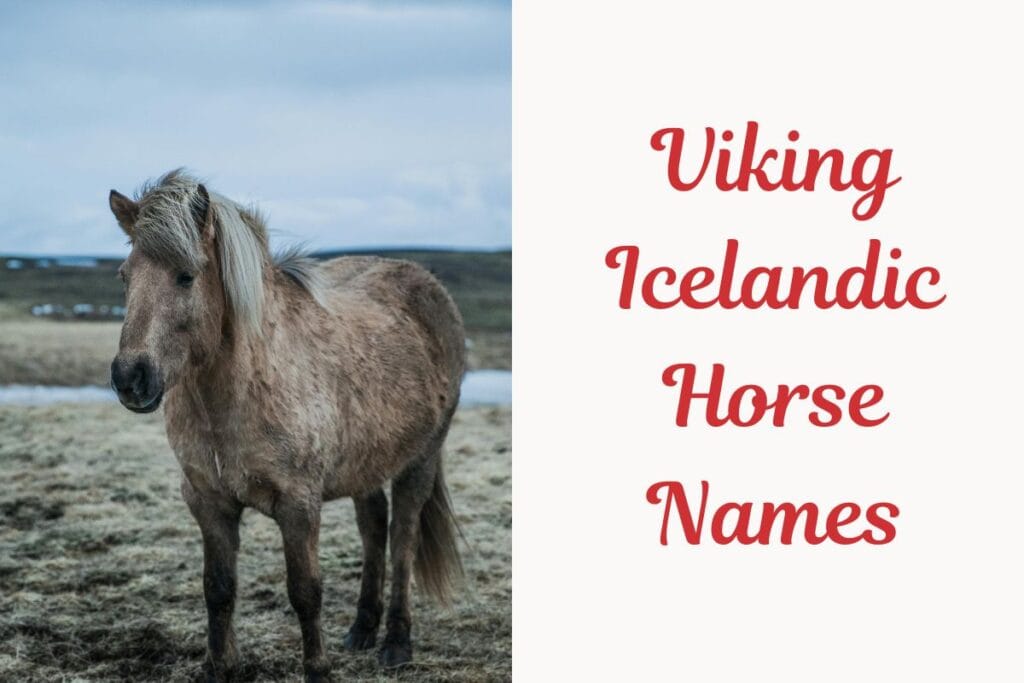
These names often evoke strength, bravery, and divine power, drawing inspiration from legendary gods, heroes, and mythological figures.
Names like Odin, Thor, and Loki represent the revered gods of Norse belief, while names like Ragnar and Sigurd honor legendary Viking warriors.
Viking Horse Names are deeply rooted in Norse mythology, Viking history, and the warrior culture of the Vikings.
1. Thorin
Pronunciation: THOR-in
Meaning: “Son of Thor”
Origin & Usage: Derived from the Norse god Thor, this name signifies strength and courage. It was a popular name among Viking warriors and could be used for a horse that embodies power.
2. Freyja
Pronunciation: FRAY-ya
Meaning: “Lady” or “Goddess of Love”
Origin & Usage: Named after the Norse goddess of love and fertility, Freyja is often associated with beauty and grace. A horse named Freyja would symbolize these traits.
3. Skadi
Pronunciation: SKA-dee
Meaning: “Goddess of Winter”
Origin & Usage: Skadi was a giantess and a goddess of winter, hunting, and skiing. This name would suit a hardy, resilient horse with a strong, independent nature.
4. Eirik
Pronunciation: AY-rik
Meaning: “Ever-Ruler”
Origin & Usage: A common Viking name, Eirik means “eternal ruler.” It was borne by several Viking kings, making it a fitting name for a noble and commanding horse.
5. Hilda
Pronunciation: HIL-da
Meaning: “Battle”
Origin & Usage: Hilda means “battle” in Old Norse and is a fitting name for a brave horse. It symbolizes strength and fierceness in combat, ideal for a warrior’s mount.
6. Ulf
Pronunciation: OOLF
Meaning: “Wolf”
Origin & Usage: Ulf means “wolf” in Old Norse, representing a strong and wild nature. This name is often associated with warriors and would suit a horse with an untamed spirit.
7. Bjorn
Pronunciation: BYORN
Meaning: “Bear”
Origin & Usage: This name is derived from the Norse word for “bear,” symbolizing strength and bravery. It’s an ideal name for a powerful and courageous horse.
8. Sigrid
Pronunciation: SIG-rid
Meaning: “Victory”
Origin & Usage: Sigrid, meaning “victory,” was a popular name in Viking times, often given to women but could easily be used for a horse that symbolizes triumph and success.
9. Odin
Pronunciation: OH-din
Meaning: “The Allfather”
Origin & Usage: Odin, the chief of the Norse gods, represents wisdom, war, and death. A horse named Odin would carry the same sense of power and authority.
10. Astrid
Pronunciation: AS-trid
Meaning: “Divine Strength”
Origin & Usage: A common Viking name meaning “divine strength,” Astrid is ideal for a horse that displays both grace and power. It was used among royal families in Scandinavia.
11. Ragnor
Pronunciation: RAG-nor
Meaning: “Warrior”
Origin & Usage: Ragnor is a strong Viking name meaning “warrior.” It invokes images of bravery and battle, perfect for a horse that is strong and relentless.
12. Ingrid
Pronunciation: IN-grid
Meaning: “Ing’s beauty”
Origin & Usage: Ingrid comes from the Norse god Ing and means “beautiful” or “beloved.” This name would suit a graceful horse, loved by its rider for its beauty and agility.
13. Thorvald
Pronunciation: THOR-vald
Meaning: “Thor’s ruler”
Origin & Usage: A name combining Thor’s power with leadership, Thorvald means “ruler of Thor.” A perfect name for a horse that carries the spirit of Thor into battle or adventure.
14. Lagertha
Pronunciation: LA-ger-tha
Meaning: “Shield”
Origin & Usage: Lagertha was a shield maiden in Viking sagas. This name embodies protection and strength, fitting for a horse known for its loyalty and courage in battle.
15. Jorund
Pronunciation: YOR-und
Meaning: “Horse of the Earth”
Origin & Usage: Jorund derives from “jord” meaning earth, and could be used for a grounded, earthy horse. It reflects strength and connection to the land.
10 Funny Icelandic Horse Names
Funny Names for Icelandic Horses can add a touch of humor to the bond between owner and horse.
These names often reflect the horse’s personality or appearance and may incorporate puns,
cultural references, or playful twists from Icelandic folklore.
A few amusing examples include:
1. Köttur
Pronunciation: kuht-ur
Meaning: Cat
Origin & usage: A playful and ironic name for a horse, as it contrasts the animal’s size with the agility and stealth of a cat. Often used for horses that have a sneaky or graceful way of moving.
2. Poppí
Pronunciation: pop-ee
Meaning: Popcorn
Origin & usage: A humorous name, referencing the idea of a horse that might be jumpy or unpredictable, much like how popcorn pops unpredictably. A common name for a horse with a bubbly personality.
3. Súkkulaði
Pronunciation: soo-kool-ah-thee
Meaning: Chocolate
Origin & usage: A sweet, fun name for a horse with a brown or dark-colored coat. It’s often used for horses with a gentle demeanor, as chocolate is associated with warmth and comfort.
4. Hrekkjusvín
Pronunciation: hrekk-yoo-sveen
Meaning: Prank Pig
Origin & usage: A humorous name for a horse that loves to play tricks on its riders or companions. It brings together the idea of mischief and a stubborn personality, much like a pig that refuses to cooperate.
5. Snúður
Pronunciation: snoo-thur
Meaning: Swirl
Origin & usage: A name given to horses with a curly mane or tail, or those who tend to twirl and spin around. It’s an endearing and funny name reflecting their quirky movements.
6. Guffi
Pronunciation: guh-fee
Meaning: Tummy (or Belly)
Origin & usage: This playful name is often used for a horse with a round or slightly plump belly. It’s a humorous and affectionate term that emphasizes the horse’s “squishy” nature.
7. Ólína
Pronunciation: oh-lee-nah
Meaning: Oh no!
Origin & usage: A funny name that’s often given to a horse that seems to get into trouble frequently. It captures the sense of surprise and frustration when things go awry, typically in a light-hearted manner.
8. Fíll
Pronunciation: feell
Meaning: Elephant
Origin & usage: A humorous name for a particularly large or heavy horse, as it plays off the idea of an elephant’s size. It’s used to joke about the horse’s impressive stature or clumsy movements.
9. Glimmer
Pronunciation: glee-mur
Meaning: Sparkle
Origin & usage: A quirky name for a horse that shines in the sun or has a sparkling personality. Often used ironically for horses that aren’t as shiny, adding to the humor of the name.
10. Blýantur
Pronunciation: blee-ahn-tur
Meaning: Pencil
Origin & usage: A funny and unique name often given to a horse that has a thin or narrow
The Origin of the Icelandic Horse Names
Icelandic horse names are deeply rooted in the country’s culture, language, and natural environment. Many names are inspired by Iceland’s dramatic landscapes—like mountains, glaciers, and volcanoes—as well as the traits of the horses themselves, such as color, strength, and temperament.
Norse mythology and Icelandic folklore also influence names, with horses often named after gods, legendary heroes, or mythological creatures to symbolize qualities like bravery, beauty, and resilience. Iceland has a long-standing tradition of preserving these names through registries, ensuring that each name holds meaning and reflects Iceland’s heritage, honoring the bond between the people and their horses.
1. Nature-Inspired Names
– Iceland’s landscape is dramatic, with volcanoes, glaciers, waterfalls, and fjords. Many Icelandic horse names are directly inspired by these natural elements, such as ‘Eldur’ (meaning “fire”) or ‘Sól’ (meaning “sun”). These names reflect the bond between the Icelandic people and their environment, symbolizing strength, beauty, and resilience.
2. Mythology and Norse Gods
– Norse mythology is a significant source of Icelandic horse names. Names like ‘Þór’ (Thor), ‘Freya’, and ‘Odin’ are common, as these gods symbolize strength, beauty, and wisdom. Mythological figures from Iceland’s folklore, such as Valkyries and legendary heroes, also inspire, adding a touch of mystique and honor to the horse’s identity.
3. Personality Traits and Qualities
– Icelandic horse names often reflect the horse’s personality or physical attributes. For example, names like ‘Glói’ (meaning “glow”) might suit a light-colored horse, while ‘Hrani’ (meaning “warrior”) is ideal for a strong and courageous stallion. This tradition highlights the close relationship Icelanders have with their horses, considering each one’s unique qualities.
4. Symbolic Meanings
– Many names hold symbolic meanings that convey concepts like protection, power, or beauty. ‘Brynja’ (meaning “armor”) and ‘Heiður’ (meaning “honor”) are examples of names chosen to symbolize qualities desired in horses, such as loyalty and bravery.
5. The Icelandic Language
– The Icelandic language itself influences horse names, as it is rooted in Old Norse and remains largely unchanged over centuries. The language’s unique sounds and structure give Icelandic names their distinctiveness, and it’s a point of pride to preserve these traditional names that honor Iceland’s heritage.
6. Names Reflecting Iceland’s Harsh Climate
– Icelandic horses are known for their endurance in extreme weather. Names like ‘Stormur’ (meaning “storm”) or ‘Frosti’ (meaning “frost”) are common and reflect the horses’ resilience and adaptability to Iceland’s cold, windy climate.
7. Historical and Literary Influence
– The ‘Sagas of Icelanders’, ancient texts full of stories about early Icelandic settlers, warriors, and gods, are another source of horse names. Names such as ‘Gunnar’ and ‘Brynhild’ come from these sagas, symbolizing bravery, loyalty, and resilience.
8. Names Based on Colors and Patterns
– The distinct coat colors and patterns of Icelandic horses inspire many names, such as ‘Skjóna’ (meaning “piebald”) for a horse with a mixed-color coat, or ‘Bleikur’ (meaning “pink”) for a lighter-colored horse. This naming tradition highlights the pride Icelanders have in their horses’ unique appearances.
9. Ritual and Tradition in Naming
– In Iceland, naming horses is a meaningful act, often following traditional rituals and beliefs. Some families pass down specific names through generations of horses, honoring family history and heritage.
10. Protection of Icelandic Horse Names
– Iceland has strict regulations protecting the language and culture, including names. Official registries carefully document and preserve traditional Icelandic horse names, ensuring these names remain part of Iceland’s living heritage.
These origins contribute to the enduring beauty and depth of Icelandic horse names. Each name tells a story that reflects the land, culture, and values of Iceland, celebrating the bond between Icelanders and their cherished horses.
Icelandic Horse Names (A to Z)
Alda – Meaning: “wave“
Andri – Meaning: “manly“
Arnar – Meaning: “eagle“
Astrid – Meaning: “divine strength“
Baldur – Meaning: “god of beauty and love“
Birta – Meaning: “light“
Bjorn – Meaning: “bear“
Brynja – Meaning: “armor“
Draumur – Meaning: “dream“
Edda – Meaning: “great-grandmother” or “ancient wisdom“
Eldur – Meaning: “fire“
Ernir – Meaning: “eagle“
Fenrir – Meaning: “mythical wolf“
Freya – Meaning: “goddess of love and beauty“
Frosti – Meaning: “frost“
Glóð – Meaning: “glow“
Gunnar – Meaning: “battle“
Hekla – Meaning: “Named after Mount Hekla”
Hrímnir – Meaning: “frost-covered“
Huld – Meaning: “hidden“
Jökull – Meaning: “glacier“
Kári – Meaning: “wind“
Kátína – Meaning: “cheerful“
Ljómi – Meaning: “brightness“
Lilja – Meaning: “lily“
Mjölnir – Meaning: Thor’s hammer
Nótt – Meaning: “night“
Ragnar – Meaning: “warrior“
Saga – Meaning: “story” or “saga“
Sindri – Meaning: “sparkling“
Skuggi – Meaning: “shadow“
Sól – Meaning: “sun“
Sóley – Meaning: “buttercup flower“
Stormur – Meaning: “storm“
Svanur – Meaning: “swan“
Tindra – Meaning: “twinkle“
Vaka – Meaning: “wakefulness“
Vali – Meaning: “son of Odin“
Vindur – Meaning: “wind“
Ylja – Meaning: “to warm“
Þór – Meaning: “Thor, god of thunder“
Þráinn – Meaning: “stubborn“
Icelandic Horse Facts
1. Ancient Breed: Icelandic horses were brought to Iceland by Norse settlers over 1,000 years ago, and their lineage has remained pure due to strict import laws.
2. Unique Gaits: They have two unique gaits – the tölt, a smooth four-beat gait, and the flying pace, a two-beat gait for high speeds.
3. Adaptable and Hardy: Bred in Iceland’s harsh environment, they are incredibly hardy, resilient, and known for their long lifespan.
4. Small but Strong: Though often pony-sized (around 13-14 hands high), they are incredibly strong and can carry adult riders with ease.
5. Thick Coat: They grow a dense winter coat to protect against the cold, shedding it in the summer.
6. Strict Import Laws: Icelandic horses that leave Iceland cannot return, helping to prevent disease and preserve the breed’s purity.
7. Gentle Temperament: Known for being friendly, curious, and intelligent, Icelandic horses bond closely with humans.
8. Highly Versatile: Used for everything from farming and herding to racing and trail riding, they excel in many activities.
9. Color Variety: They come in many colors and patterns, including unique combinations like pinto and dun.
10. Cherished National Treasure: Icelanders highly value their horses, which play an important role in Icelandic culture and folklore.
These qualities make the Icelandic horse one of the most unique and beloved horse breeds in the world.
Icelandic Horse Heights
Icelandic horses typically stand between 13 to 14 hands high (52 to 56 inches, or about 132 to 142 cm). Despite their smaller stature, they are strong and sturdy, often carrying adult riders with ease. Their compact build and thick coats make them well-suited to Iceland’s harsh climate, adding to their resilience and versatility.
Tips for Choosing a Japanese Horse Name
1. Consider Personality: Pick a name that reflects the horse’s temperament, like “Gleði” (joy) for a cheerful horse.
2. Physical Traits: Choose a name based on their appearance, such as “Svartur” (black) for a dark horse.
3. Icelandic Mythology: Draw inspiration from legendary figures like “Baldur” or “Thor” for a strong horse.
4. Nature-Inspired: Names like “Víðir” (forest) or “Snjór” (snow) can reflect Iceland’s landscape.
5. Keep It Short: Short, simple names are easier for the horse to recognize and respond to.
6. Unique Spelling: Use Icelandic spelling to give the name an authentic feel, like “Þór” for Thor.
7. Family Tradition: Honor family heritage or ancestors with names passed down through generations.
8. Meaning Matters: Choose names with meaningful translations, like “Hamingja” (fortune).
9. Easy Pronunciation: Make sure the name is easy to say and remember for both you and others.
10. Test It Out: Try calling the name to see if it suits the horse and feels natural.
